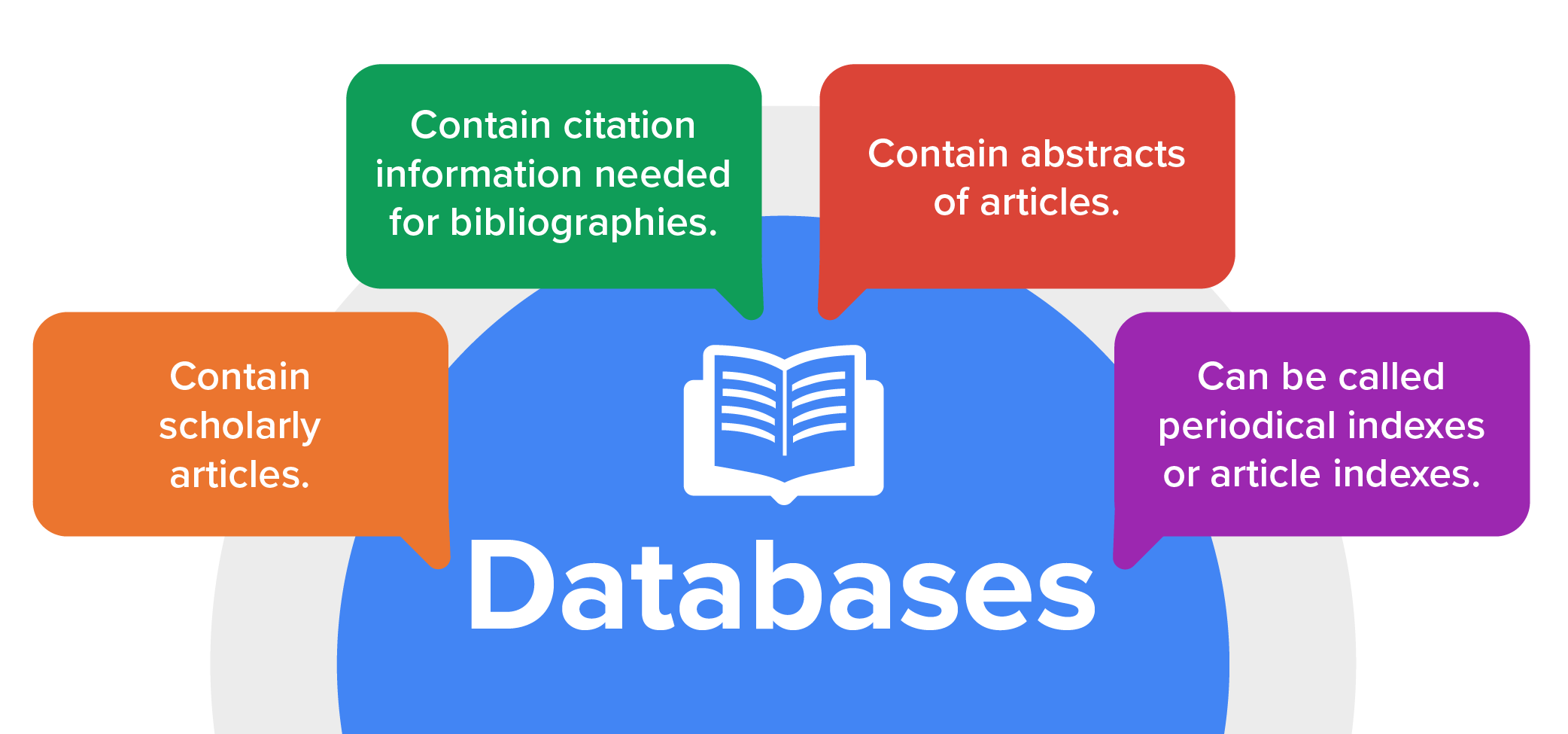Table of Contents |
As you learned earlier, some of the strongest articles to support your academic writing projects will come from scholarly sources. Finding exactly what you need becomes specialized at this point and requires a new set of searching strategies beyond even Google Scholar. For this kind of research, you’ll want to utilize academic databases through a library.
EXAMPLE
Khaleel emails the local library to find out what access he has to academic databases. The librarians ask him about his topic and give him a list of options and confirm the login information. Khaleel searches for articles using the list of search terms that he wrote. He scans the articles for how relevant they will be for his paper and saves them as PDFs. He adds the article information to a list of notes that he is taking during his research.
Some databases contain a mix of information from various sources, including popular magazines, news articles, and some scholarly content, while other databases specifically focus on providing access to peer-reviewed academic journals and other high-quality, credible research materials. As we explored earlier, a journal is a scholarly publication containing articles written by researchers, professors, and other experts. Journals focus on a specific discipline or field of study. Unlike newspapers and magazines, journals are intended for an academic or technical audience, not general readers.
Journals are published on a regular basis and are sequentially numbered. Each copy is an issue; a set of issues makes a volume (usually each year is a separate volume). Like newspapers and magazines, journals are also called periodicals or serials.
Think of articles found in popular journals or magazines as published widely and usually addressing a general audience. These sources may help you narrow your topic by giving you a basic understanding of the range and scope of the “conversation” you are entering in your research process.
Remember that when searching an academic database, a good first step to narrow your results is to apply filters such as publication date, subject area, and peer-reviewed articles. These filters help refine your search so you can find the most relevant and credible sources quickly. While adding more search terms can eventually narrow results, using filters is a much more immediate and effective way to focus your search. It’s also better than trying to read several articles first or just picking from the first page of results, which might not always lead you to the best sources.
Scholarly journal articles are written and published by academic researchers. These publications often have more specialized information and vocabulary and are most useful after you have narrowed your topic and developed specific research questions. Within the range of scholarly articles are those that are peer-reviewed or found in peer-reviewed journals, which are generally more specific and contain more reliable information because they are written by experts and reviewed by other experts in the field before the article is published.
Here are some examples of databases:
REFERENCES
University of Victoria Libraries. (n.d.). Journal article tips. University of Victoria. www.uvic.ca/library/help/tips/journal/index.php